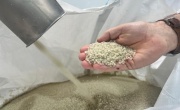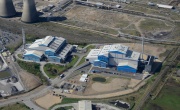Government ‘embraces’ Lords plan for bioeconomy
 The House of Lords Science and Technology Committee announced yesterday (18 June) that the government has ‘embraced’ the central recommendations put forward in the committee’s March report on waste and resources and the development of a bioeconomy in the UK.
The House of Lords Science and Technology Committee announced yesterday (18 June) that the government has ‘embraced’ the central recommendations put forward in the committee’s March report on waste and resources and the development of a bioeconomy in the UK.
Results from the committee’s six-month inquiry into the economic benefits of waste were published in 'Waste or resource? Stimulating a bioeconomy'.
The government has released a statement that it will ‘develop a long-term plan for delivering and supporting a growing bioeconomy by early 2015’.
In response to the Committee’s call for the election of a ‘Waste Champion’ to oversee the plans, the government has announced that BIS Minister Michael Fallon will assume role of 'Ministerial Champion for the Bioeconomy'.
In addition, a cross government Steering Group will be established with industry and key stakeholders to coordinate the development and stimulation of a bioecomony.
Bioeconomy details
The bioeconomy supports a ‘brass from muck’ model of resource use, where waste (specifically organic wastes, waste gases and materials that contain carbon) can be transformed into useful resources.
The Lords inquiry focused on the potential to use ‘cutting edge technologies’ to convert wastes into ‘valuable products such as fuels, flavours and fragrances, plastics, paint or pharmaceuticals.’
The committee state that the development of a bioecomony ‘could see enormous economic benefits’ as well as providing ‘a considerable number of green jobs’.
Lord Selborne, Chair of the House of Lords Science and Technology Committee, said: “We are pleased that the Government have embraced our principal recommendations and we look forward to the forthcoming long term plan for delivering and supporting a growing bioeconomy.
“We heard in our inquiry that the UK now has a real chance to develop a multibillion pound economy from waste and we are glad that the Government seem seized of this opportunity.
“We will doubtless return to this topic in due course to check the Government’s progress against the commitments they have made today.”
Inquiry background
The House of Lords originally launched the inquiry in November last year (2013) in order to investigate into the potential to develop a ‘multi-million pound economy from waste, using by-products from agriculture, industry and households’.
The committee cited the following reasons for carrying out an investigation into the issue of waste and bioeconomy:
- Explore in greater detail the ability of current technology in the UK to exploit waste’s potential to create goods, fuels and chemicals;
- Establish if waste could contribute to a burgeoning ‘green economy’ in the UK;
- Investigate the potential for the UK to be competitive within the Europe and internationally;
- Examine whether the government had a joined-up strategic approach to funding, policy and regulation in this area.
Evidence for the report was collated from the committee’s questioning of a panel of government ministers in January in addition to various hearings with a range of business, third-sector and government officials on what encourages and discourages investment in waste technologies; how waste can be turned into new products; and how the EU prevents food waste.
Read the full government response to the repor and further details about the committee’s inquiry.




